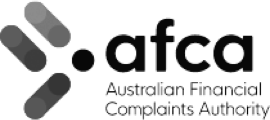A strong theme is emerging from two consecutive years of Banjo’s annual SME Compass research among the leaders of over 500 SMEs* across Australia.
A substantial number of the SMEs surveyed increased investment in their businesses in response to the pandemic, and it seems to be paying off for them. The research found that the businesses that kept investing, and usually borrowing to invest, are consistently growing and meeting or exceeding their targets.
This seems to have contributed to the health of the sector post-COVID, with a lot more Australian SMEs (55%) achieving or exceeding their revenue targets in 2021 than the previous year (45%).
The biggest increases in investment were in new technology (61% in 2022 vs 51% 2021) and marketing (50% vs 41%). Acquiring real assets and moving all or part of the business online were also high up the list.
SMEs who invested in new technology, purchased new assets and increased headcount were most likely to achieve success by exceeding their revenue targets. Thirty per cent outperformed their targets in the last year, up from 25% the previous year.
This may be one of the key reasons Australian SMEs are coming out of two years of the pandemic with a positive outlook and a continued eagerness to invest in their business. With 69% expecting their revenue to grow over the next 12 months, and 83% confident about the future of their business, there’s high optimism for the year ahead.
Those who are anticipating growth say they’ll be investing in their business in 2022 by improving existing products, investing in new technology and spending more on marketing than last year.
Forty seven per cent of businesses are planning growth through acquisition – up from 42% in 2021. This year, a greater proportion of SMEs (45%) are using acquisitions to add value to customers by strategically enhancing their products’ “stickiness” compared to last year (33%). Acquisitions are also increasingly being viewed by respondents as a way to grow product offering, revenue and profitability.
Despite the upbeat outlook and strong progress, there are some roadblocks. Many SMEs are still frustrated by the traditional bank borrowing process.
A majority (62%) of SMEs continue to face challenges when trying to secure funding in this way. The glacial pace of traditional bank procedures was the main frustration in 2022. With 40% of SMEs turning to the major banks as their first funding option, this suggests many are not fully informed about the alternative faster and more efficient loan options available to them.
Sixty three per cent of SMEs intend to fund their growth in the coming year through loan facilities such as bank loans, founder investment and credit facilities. With secured business loans and term loans the most commonly used financial products, this suggests many are yet to understand that unsecured loans are a viable option.
Other challenges have certainly been faced in 2021 and early 2022, including supply chain issues and labour skill shortages. But it seems many businesses have used strategic measures, including further investment, to overcome these.
SMEs certainly rose to the challenges of the past year, and are displaying the optimism, business savvy and flexibility needed to help them navigate whatever 2022 throws at them
*the respondents were from a broad cross-section of businesses, none of whom were Banjo clients.

